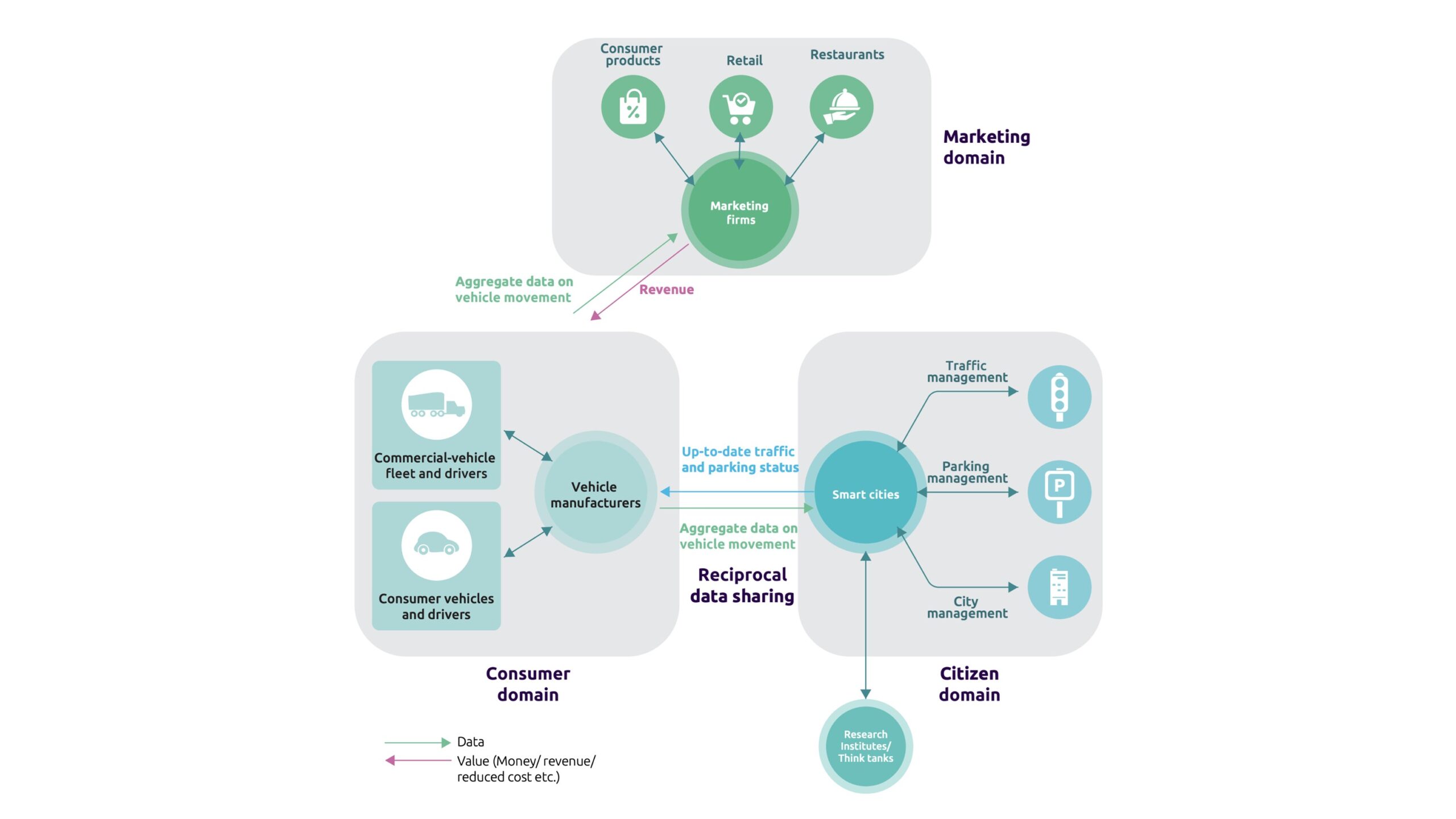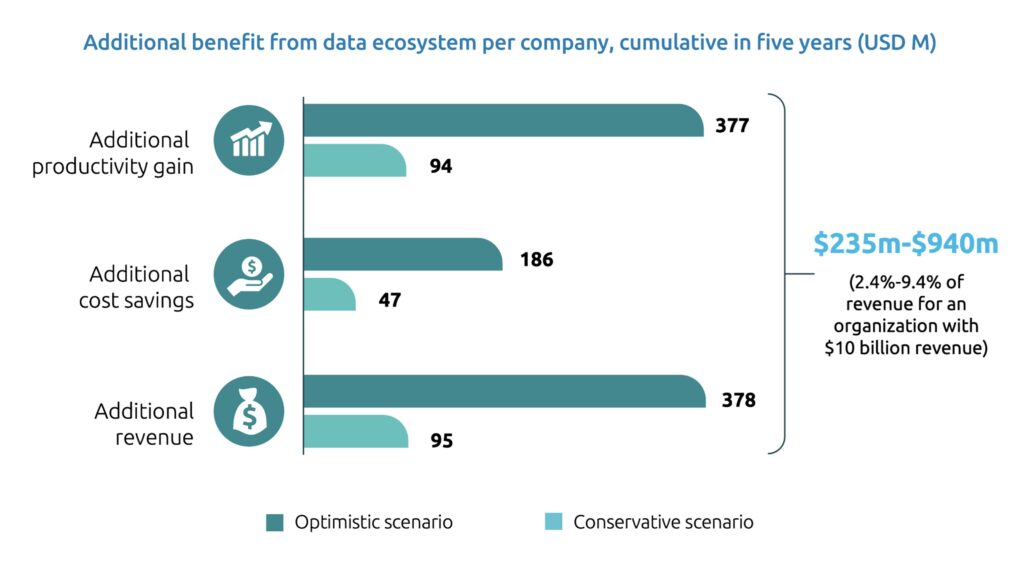How smart organizations use data ecosystems to gain an unbeatable competitive advantage
I spent the first part of my career as a technologist, and still today, I can get distracted by the shiny, magic bits that a new invention or tool can offer me. Don’t make my same mistake, however: tech is a means to an end, and useless without being rooted in purpose. What really gives technology meaning is its application and how that enables us to change the world.
Moving the focus away from technology to application
Data sharing is no exception. All practices required to share data between organizations – so that they can work better together, collaborate and build new products and services that would not have been possible otherwise – used to be mostly a technology challenge. Pressed by technology constraints, it was natural that our focus was on the networks, software and hardware that made all of that possible. In the 2000s, what we called “Big Data” was probably the last wave of technology when the tools stole the show, rather than their application.
Things are different today. Technology is more mature, more affordable and faster. We can afford at the same time to be more ambitious and more sensible. When talking about data sharing, and data spaces in particular, we’re thinking first about collaboration, co-creation and governance; we are protecting the sovereignty of people and their data as well as the intellectual property of businesses; we plan for all this to be financially viable, sustainable, and secure.
Sure, there’s still some cool, cutting-edge tech that makes all of this work, but what we really want to achieve is the free flow of data that the European Union has been aiming at for a very long time. The original concepts of free movement of goods and of mobility of services and professionals within the Union naturally extend from it. In a digital world, one can’t be achieved without the other.
Understanding data sharing ecosystems is the first step to exploit their opportunities
Once you manage to take your eyes off the tech, what you want to learn first is the many possible models by which data sharing occurs and the players and dynamics by which they interact in “data sharing ecosystems”. This is particularly relevant if your organization is new to the opportunity and evaluating its options.
My colleagues at the Capgemini Research Institute come to help. The Institute has spent substantial effort identifying general models and patterns, by analyzing the market and interviewing 750 industry executives in 12 countries and over 30 industry experts and academics engaged in data sharing ecosystems. Lots of illustrations capture the models and describe them, since the first pages of the new “Data Sharing Masters” study, available at https://www.capgemini.com/research/data-sharing-masters/.

There isn’t yet a consensus around how to best describe and classify data ecosystems. Capgemini’s take joins the work of many other organizations studying and promoting best practices for the development of data spaces, many of which are with us contributors to Team Data Spaces.
Research shows that the opportunity is tangible and already embraced by many organisations
The report does not stop at describing data-sharing ecosystems. Particularly with businesses in mind, the researchers examined how data sharing ecosystems cut across sectors, data domains and value chains, and the most common use cases. They found something that we at Team Data Spaces were, unfortunately, aware of already from direct experience: the potential of data sharing is far from being fully untapped. However, if you are still on the fence, the report will help you by providing you with an informed estimate of the potential benefits.
We’re talking about both financial and non-financial benefits. Even just looking at the experience of organizations already engaged in data ecosystems, the researchers have observed, for example, that data sharing practices improved customer satisfaction by 15%, improved productivity and efficiency by 14% and reduced costs by 11% annually in the last 2-3 years.
The potential financial benefits are also multiple, from new revenue streams, cost savings, and productivity improvements. They can reach 9% of an organization’s annual revenue in total in the next five years (equivalent to over EUR 790 million for a typical organization with annual revenues of around EUR 9 billion).

It’s no surprise then that the European Commission is investing significant effort in developing open data and data sharing in Europe, and that we created Team Data Spaces to support that effort and the wide range of data spaces initiatives planned as part of the European Union’s Digital Europe Programme.
Through the eyes of their interviewees and the analysis of their businesses’ results over the last several years, my colleagues at the Capgemini Research Institute captured a snapshot of how much potential there was in data sharing even before the adoption of the latest generation of models, governance, business models and technology. There is where Team Data Spaces’ focus is, and the European Union’s ambition.
Gianfranco Cecconi is the international data policy lead at Capgemini Invent in the Netherlands. His Capgemini team started “Data Sharing Acceleration”: a dedicated initiative to thrust the development of data sharing practices among Capgemini’s clients worldwide. Gianfranco is an experienced technology strategist and programme manager, an open and shared data advocate and a data scientist who brings together an interdisciplinary skillset with a creative approach and has a unique profile between technology, strategy and advocacy.
